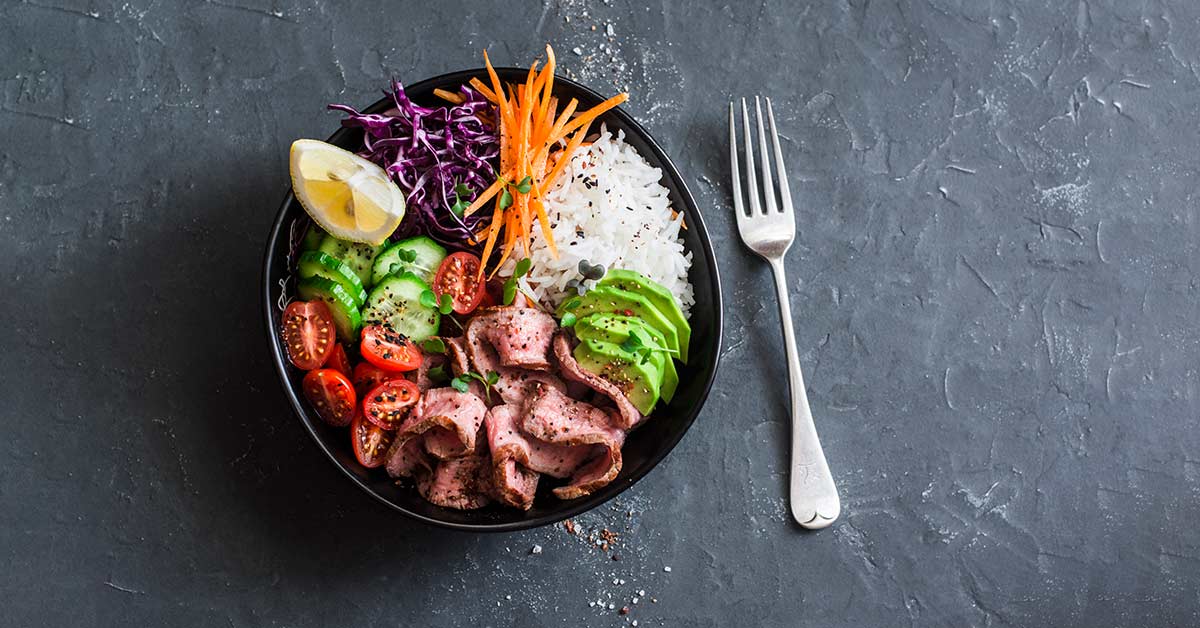
Sports nutrition is an art and a science. Investing in a high-quality nutritionist gets you more individualization, which accomplishes more for an athlete’s short- and long-term health and performance. As a sports nutritionist, athlete, and soon-to-be registered dietitian (RD), I’m sick of hearing “food is fuel” and other weak, outdated, and general sports nutrition advice.
If you are a pro athlete or team looking for a high-value nutritionist or a coach looking to outsource nutritional programming, then this article is for you.
First and foremost, I’m brutally honest in this article because I genuinely want to enhance the sports nutrition field. Therefore, it was very difficult to remain brief. I’m not trying to bash the field of RDs (licensed nutrition professionals). They are considered the “experts in food and nutrition,” but they’re not necessarily the experts in sports nutrition (as I explain below).
RDs may be experts in ‘food and nutrition,’ but they’re not necessarily experts in #SportsNutrition, says @OnYourMark_NUTR. Share on XI developed these points from my practice as a dietitian, dietetics education, experience as a competitive athlete, relationship with athletes, collaboration with other sport science professionals/coaches who are highly knowledgeable in nutrition, and understanding of the sports nutrition practices of other RDs.

Credentials
Obviously, credentials are important, but they’re not a deal-breaker. Depending upon your sports nutrition needs, the RD credential is very important in certain states, contingent on the laws and regulations (check your state’s licensure laws). However, I argue that the RD credential is different when it comes to sports nutrition.
As someone who completed the dietetics curriculum, I can tell you it’s NOT intended for those who are solely interested in sports nutrition. It focuses heavily on clinical nutrition (medical nutrition therapy) and food service/management. This knowledge is important (you will have athletes with medical conditions), but is not enough for sports nutrition. Typically, the sports RD learns about sports nutrition on their own.
Regardless, a nutritionist should have some type of credential (undergraduate and/or graduate level) that certifies them as a nutritionist. For example, I know PhDs in exercise science and/or nutrition who are not RDs, but are better than RDs when it comes to sports nutrition. Conversely, if someone has a PhD in nutrition, it doesn’t mean they know how to work one-on-one with an athlete or understand the real-world challenges that athletes face.
PhDs typically conduct research. Research is obviously very important (it’s a huge foundation of my practice), but there are many factors in research that do not translate to real-world problems. Knowledge is power, but being able to apply knowledge is even more powerful.
Here’s a confession: As a nutritionist, I have my own personal nutritionists. Of the five, only one is an RD: Bob Seebohar, MS, RD, CSSD, CSCS, METS II. More importantly, Bob’s an exercise physiologist and ultra-endurance athlete. He’s one of my mentors, and broke me out of the groupthink found in 90% of the sports nutritionists out there. His work is a huge foundation of my practice.
Knowledge is power, but being able to apply knowledge is even more powerful, says @OnYourMark_NUTR. Share on XMy other nutritionists include: Carl Valle (top sport scientist), Alan Bishop (Director of Sports Performance for University of Houston Men’s Basketball), Jorge Carvajal (renowned S&C coach who works with the NFL, surfers, and special operations), and Dr. Jose Antonio (CEO of the International Society of Sports Nutrition and an exercise science researcher). Each of these men has shaped me as a nutrition professional and a person.
Here’s another confession: As an applied sport science nutritionist, other RDs are not my resources because I neither work in clinical nutrition, nor am I a foodie. My other resources hold PhDs in exercise science and nutrition.

Experience: Professional and Athletic
Just because a sports nutritionist works privately with many pro athletes or as the nutritionist to a pro or collegiate team, it doesn’t necessarily mean they’re good, and vice versa. (The same can be said for any industry.) I’m not trying to bash anyone here—I have two points with this based on my personal experience: 1) quality vs. quantity and 2) ulterior motives.
One RD for hundreds of university athletes or a team of 100 football players signals poor quality. How much of a positive impact can anyone have given that ratio of attention? Some pro teams hire nutritionists as “consultants,” and they may just do so because it sounds good. Some of them barely use the nutritionist.
Here’s something to consider: What is the nutritionist doing that’s causing a major difference in health/performance outcomes? Meal plans that everyone could benefit from, but no one adheres to?
In sports, the RD doesn’t really have any accountability when it comes to winning and losing compared to the other coaching staff. This is exactly why you’ll see certain coaches take their players’ nutrition into their own hands when they don’t like what the RD is doing. That’s because they know how much nutrition contributes to performance.
For ulterior motives, how many nutritionists took the job with a pro team just to use it as a marketing tool or to get them to a different dream job? Typically, these nutritionists do minimal work for the pro team. This is very, very sad, as it hurts the reputation of the sports nutrition industry. The sports world is small, so word spreads easily.
Fortunately, great teams can easily tell, BUT this usually happens after they hire the nutritionist. This suggests that many teams do NOT know how to hire a high-quality nutritionist… I hope this article helps them.
With respect to sport, this is where just being an RD and not an athlete does not work. Being into fitness and doing yoga, Pilates, and spinning is one thing—that’s exercise nutrition. Competing in a sport is another thing—that’s performance nutrition. How many of those RDs were competitive athletes and/or are currently still training like a competitive athlete? This is important because they need to be able to understand WHY athletes do certain things when it comes to nutrition. This is called empathy.
Understanding and applying nutrition for exercise is very different than for sport performance, says @OnYourMark_NUTR. Share on XFor example, an RD once called me out for an Instagram photo of me drinking a Coke while on a 100-mile training ride. (I’m a competitive cyclist.) For brevity purposes, I won’t get into details as to why I was drinking the Coke (actually, I only drank half). This is the most important point I made:
Imagine you’re a high-level cyclist who burns 2,500+ calories on a 100-mile ride that is completed in sub-five hours in Miami’s heat and humidity. You stop, dehydrated and depleted, in the middle of nowhere at mile 80. There are limited “refueling” options. You need to choose the lesser of two evils: Gatorade or Coke. I chose the Coke. Why? It’s psychological. When I’m riding under those conditions, I hallucinate Coke ahead of me on the hot ride—not Gatorade. I want a refreshing option. In certain contexts, that option is Coke. It’s psychological. That choice is based upon a current state of mind. The Coke served as a multifactorial ergogenic aid.
Understanding and applying nutrition for exercise is very different than understanding and applying nutrition for sport performance.

The Nutritional Advice and Approach
This is highly important. Many RDs conform to the typical sports nutrition “dogma.” For example, the beliefs that 60% of calories should come from carbs, following a “high” protein diet (cue Dr. Jose Antonio as to what is considered “high”) is bad for the kidneys, and you should avoid supplements because you can get all of your nutrients from food.
All of that tells me (and any coach who knows a lot about nutrition) everything I need to know. There are only a handful of nutritionists who transcend this “one-size-fits-all” model. I’ve actually given interview questions to a performance coach who was hiring an RD. The answers would show whether or not the RD surpassed the shotgun approach.
There are some phenomenal sports nutritionists who work with Olympic, pro, and collegiate athletes privately rather than as the team nutritionist, for many valid reasons. I understand the influences of the food industry, politics, and restrictive budgets, which all change the approach of an exceptional sports nutritionist (hence, the reason I’ve never actively pursued those positions). Unfortunately, many administrations do not provide enough resources to meet expectations. Yet, resorting to Fruit Loops, Goldfish crackers, and Rice Krispies treats in the fueling station or mac ‘n’ cheese and hot dogs at the training table is the easy way out. And it sounds like a breeding ground for bad gut microbiota.
Some nutritionists say they don’t have enough money and man power. This goes back to my point above regarding accountability. According to some performance directors and S&C coaches, they know that excuses don’t save their job if they don’t win games, so they take the reins and oversee nutrition. Some of them do a phenomenal job.
Excuses won’t save their job if they don’t win, so some coaches take the reins to oversee nutrition, says @OnYourMark_NUTR. Share on XWithin two weeks of covering for the University of Miami Athletics’ RD, I changed one team’s nutritional approach. Without giving any of my solutions away, the difference-making play was founded on a go-getter mindset driven by innovation, achieving buy-in, and focusing on doing not what’s easy, but what’s best. Subsequently, I was asked to be a consultant.
To my knowledge (and my colleagues’ knowledge), very few RDs implement carbohydrate periodization (“fuel for the work required”). Is it because they do not know how training periodization works? Nutrition Periodization™ was coined by Bob Seebohar many years ago. Unfortunately, we’re still seeing traditional “fueling” tactics.
A nutritionist can tell you their philosophy (e.g., emphasis on plant-based eating, food is “fuel,” ketogenic diet, anti-supplements, etc.), but you can tease it out further through personal discussion and their social media, written works, and presentations. What do they emphasize? Does this align with what you’re looking for?
Many nutritionists are anti-supplements and tout a “food-first approach.” However, this is a poor approach. Don’t get me wrong—I am a fan of food first; however, this is NOT realistic or practical for an athlete’s health and performance. This is the reason I advocate for a “nutrition-first approach.”
“Athletes: Fit, but Unhealthy?” is the foundation of my practice. Just because an athlete has six-pack abs, does not mean they’re healthy.
The goal is to optimize nutritional status. Lack of blood testing means nutrient deficiencies are not caught and corrected. Prevalent patterns of “fueling” with Goldfish, sugary sports drinks, and other processed, empty calories contribute to chronic inflammation. So, the high training load and poor diet (e.g., high in refined carbs/high glycemic, lack of micronutrients) contributes to even more inflammation and oxidative stress.
An athlete may have six-pack abs, but that does not mean they’re healthy, says @OnYourMark_NUTR. Share on XThis brings me back to the “you can get all the nutrients you need from food” argument. When you need a therapeutic dosage, that’s incorrect. I have data showing food is not enough for the optimal status of many nutrients.
For performance, a major trait in athletes is their desire for the 1% performance benefit (marginal gains). This is where certain supplements that are ergogenic aids and have stood the test of time in research come into play. If a nutritionist is not a competitive athlete, then that may be a red flag. They do not understand ergogenic aids that are only ergogenic in supplement form (e.g., creatine, beta-alanine, etc.).
“Should I take creatine?”
“You can get it from food.”
Wrong. A pound of uncooked beef and salmon contains 1-2 grams of creatine. Let that sink in. How much would you have to eat to get a performance benefit? How much would an athlete who experiences repetitive head trauma/concussions have to eat to get a potential brain health benefit?
If a nutritionist doesn’t advise a vitamin D supplement for certain athletes, did they blood test to confirm? What if there’s research using the RD’s population of athletes showing that they are typically deficient/insufficient in vitamin D? For some populations, there are some supplements that are simply a first-line supplement.
How does the nutritionist approach their programming? The typical services provided by an RD include one-on-one counseling. However, what are they specifically providing in their services? A meal plan? That’s great. Too bad meal plans don’t work. For example, many athletes cannot procure the foods in a meal plan.
Is the nutritionist only educating? Doing things like posting nutrition tips around a locker room? Education is important, but it’s only part of the solution.
Here comes a major difference and selling point: testing. If you’re not testing, then you’re guessing. (Sometimes it’s not feasible to test certain things, which I understand.)
How many calories do you need per hour? How many of those calories should come from carbohydrates? This is why I invested in a top-of-the-line metabolic cart. As an athlete, I was tired of cookie-cutter recommendations from sports nutrition “guidelines.” I removed the guesswork. I’m looking forward to seeing how my muscle glycogen testing (using ultrasound) further helps me pinpoint and resolve athletes’ efficiencies and inefficiencies.
Optimizing performance starts with optimizing the blood. An important aspect that few RDs and doctors consider is when an athlete is at the low or high end of a “normal” range for a lab value. Blood test normal ranges can be arbitrary.
Optimizing performance begins with optimizing the blood, says @OnYourMark_NUTR. Share on XWith some of my NFL players, I caught many biomarkers that I knew were major red flags (based on the population-specific research) despite being in a “normal” or near “normal” range. I’ve provided athlete-specific research to doctors showing lab value ranges that must be considered because they differ from the normal lab values. For example, an athlete may be on the very low end of “normal” for testosterone or vitamin D, but why not try to be “optimal”? This is when I learned to be even more selective when finding doctors for my athletes.
Here’s an analogy I give my athletes. The “normal” range for the 40-yard dash is 4.3-4.8 seconds. Imagine a player finishing in 4.8 seconds and their coach telling them that their time is “normal.” Subsequently, they do nothing to improve it. Why should the coach just settle on letting the athlete be “normal” instead of pushing him to be “optimal”?
Ultimately, the athlete should be treated, not the blood test. Not doing so can have major career-based implications. My goal is to build age-defying athletes to increase their sport life span.
Advice should not be general; it must be athlete-specific. Applied sports nutrition science that offers a toolbox of tests provides nutritional programming that is more personalized and solid.

Buy-In Strategy
The value of the smartest nutritionist in the world diminishes if they can’t get their athletes to follow-through, or cause a behavior change. This is buy-in, which I learned from Brett Bartholomew’s Conscious Coaching.
Why do some athletes not listen to an RD’s advice? Why does the athlete listen to nutritional advice from the coach or S&C coach? The answer is buy-in. This starts with being present as much as possible (this hurts consultants and part-timers), building rapport (e.g., having conversations that are NOT about nutrition), and, ultimately, gaining trust.
If a high level of presence is not feasible, how does the nutritionist work with it? Build a relationship with the coach—they are the middleman. If you want to make a difference, communication with them is HIGHLY important because they have a major influence on the outcome. For a nutritionist, this may take some serious selling of themselves and their nutritional philosophy (especially if the coach is well-versed in nutrition).
This buy-in with coaches is also important because the nutritionist must be able to communicate with the rest of the athlete’s performance team. This multi-disciplinary approach is pivotal to enhancing athlete care.
It doesn’t matter what you know; it matters what you can get the athlete to do. This is exactly why posting “nutrition tips” and other educational materials in the athlete’s environment is not effective. Do you think a pro athlete cares about reading this around his or her locker?
It doesn’t matter what you know; it matters what you can get the athlete to do, says @OnYourMark_NUTR. Share on XThis is also why most of my colleagues are coaches. Because of them, my impact is even greater.

Nutrition Science Specialist
“You’re not hired expecting to already know everything. You’re hired expecting to figure it out when you don’t.” – Adam Ringler
That’s a fact. In nutrition, it’s obviously impossible to know everything. When you don’t know something, that’s fine. Be humble and own it, but be pro-active and figure it out.
This is why the most valuable skill is being able to read peer-reviewed research, understand it, and apply it to the real world. I’m not saying you have to be a wizard and be able to critique the statistics. But even at the graduate level, others would simply regurgitate study abstracts.
There are two types of sport scientists: the applied and the researcher. The applied implements the program based on sound principles and identifies crucial gaps in current knowledge. The researcher conducts and communicates the latest research findings to the performance enhancement team and serves as a point of reference.
A nutritionist who is an applied sport scientist is part of the multidisciplinary sports performance enhancement team. This is a practice that’s more prevalent in Australia and Europe.
Unfortunately, many nutritionists simply read research briefs and textbooks and do not apply the results within the appropriate context. A great example is beetroot juice. I’ve had an RD consulting for a pro team tell me they were going to have the players drink beetroot juice because they read about it in their textbook. I told the RD that when it comes to sports nutrition, don’t read textbooks, read the studies.
When it comes to sports nutrition, don’t read textbooks—read the studies, says @OnYourMark_NUTR. Share on XI hear many RDs tell athletes to drink beetroot juice if they want to perform better. I’m not saying you have to explain to athletes the mechanisms of how nitrates impact performance. I’m saying how the nutritionist applies the research sometimes warrants skepticism.
Which types of athletes could benefit? What is the dosage of nitrates for efficacy? Did you test if the athlete is a “responder?”
I will spare you the nuances of beetroot’s effective application. However, the details matter, especially the more elite the athlete. It’s easy to forget that athletes take many supplements. There is a “pill fatigue” problem. Applying the science of beetroot juice led to my fingerprints on 12 medals from Rio 2016. This is because the efficacy was found in the details.
Another thing I’ve seen from RDs regarding certain nutritional strategies is, “we need more research.” This is obviously context-specific. However, there are numerous innovative sports nutrition practices that have enough research for a nutrition science specialist to know how to investigate and apply it to a particular athlete. Concluding that something “needs more research” (let’s say “train low”) to cover themselves tells me that they’re doing what’s easy instead of what’s best. Acknowledge some aspect of a strategy needs more research, but then discuss how it could be applied.
This is the reason I don’t read textbooks—I read the studies. This is also the reason athletes are always ahead of the research. Because that’s the mindset of the athlete—to implement strategies before others do. And that’s the mindset of my approach to nutrition science: If there’s a neutral or potentially positive effect and it’s applicable, then go with it, especially if it works.
A nutrition science specialist is also in the athletes’ best interests, especially when it comes to health. In contemporary medicine, doctors wait to treat a problem instead of actively monitoring to prevent problems (see blood test example above). Preventative nutrition is innovative. (And it doesn’t include Goldfish.)
If a strategy has a neutral or potentially positive effect and it’s applicable, then go with it, says @OnYourMark_NUTR. Share on XI asked one of my NFL players (who is dark-skinned and lives at a particular latitude) if the team RD ever recommended a vitamin D supplement. The answer was surprising, considering the research at the NFL Combine and with the Pittsburgh Steelers and NY Giants. Not soon after, I confirmed what I suspected via a blood test.
One of my specialties is brain resilience, especially for those who experience concussions/repetitive head trauma. With my NFL players and boxers, they know the value I give them is neuroprotective nutrition. What they don’t know is the thousands of hours I invested in building my protocol via investigative research and sound judgment.
It is estimated that it may take as long as one to two decades for original medical research to be translated into routine medical practice. My practice’s philosophy doesn’t have time for that. I’m thinking about the athlete’s brain health in five to 10+ years.
Even though I have a background in neuroscience research, I need to give credit to Jorge Carvajal, who continually enhances my investigation. Jorge is 15 years ahead of the research regarding nutrition and concussions. Because of him, I’ve been able to make more of a profound difference by looking for things I never would’ve suspected.
This is where I found the biggest “why” to my career, which leads to the next trait.

Care
I saved “care” for last because it’s the most valuable and underappreciated/overlooked aspect. I’m not talking about a superficial level of care. I’m talking about a willingness to go above and beyond for the athlete, to the point of “non-billable hours.” This can reveal so much, including how much you love your job. If you make the athlete’s best interest your best interest, you are truly committed.
An athlete may not know what a carbohydrate is, but they know when someone truly cares. World-renowned sport psychologist Allistair McCaw describes it perfectly: “To make an impact and difference in someone’s life, you don’t need to be famous, brilliant, rich or perfect. You just have to care.”
Practical Advice
An exceptional nutritionist is not a price you pay, but rather a value you receive. Nutrition builds age-defying athletes, so they can push their career and success in their sport, health, and longevity.
An exceptional nutritionist is not a price you pay, but rather a value you receive, says @OnYourMark_NUTR. Share on XIf you choose the right nutritionist early on, the benefits include: a better plan for health and performance, increased longevity in their sport, and/or, if a pro athlete, possibly saving/extending the life span of their career.
As we all know, in sport, it’s not about doing what is easy. It’s about doing what is best.
Since you’re here…
…we have a small favor to ask. More people are reading SimpliFaster than ever, and each week we bring you compelling content from coaches, sport scientists, and physiotherapists who are devoted to building better athletes. Please take a moment to share the articles on social media, engage the authors with questions and comments below, and link to articles when appropriate if you have a blog or participate on forums of related topics. — SF


Great information for someone interested in becoming a sports nutritionist.
As a sports RD, with the CSSD credential, who focused my masters in ex phys and works with pro and non-pro athletes, I agree that most RDs aren’t the appropriate resource for sports nutrition, but still think RDs who are trained in ex phys and sports nutrition are the best resources for athletes. As you mentioned “being able to apply knowledge is even more powerful” and I most often find it’s those with a PhD who focus on research studies rather than how those studies apply to everyday life of an athlete who aren’t as capable of working 1-1 or in group settings. Most PhDs have a specific area of expertise (ex: vitamin D in athletes or carbohydrates for endurance). Which is fine! We need their expertise in the lab so that we can apply it to individuals we work with. I feel dietitians are well equipped to work through motivational interviewing and to consider all aspects of health versus just nutrition for performance (mental health being the most important). Furthermore, I think the problem with coaches or trainers just “not liking what the RD is doing” is more of a problem with communication than it is with the RD. Working in pro sports, the only issues I have are when a strength coach, coach or athletic trainer is resistant to work with me as a team and give an athlete the 1-1 care they need. They assume the general education provided to the team (based on sound sports nutrition science) is the end all be all for me. When they take full advantage of my role with the team however, the athlete benefits by getting more personalized attention because one diet does not fit all. I know the point of this was not to bash RDs, but I encourage you to write another article on the importance of collaboration with all professionals available to help the athlete since many coaches & trainers are hesitant to embrace the role of RDs in sport – which to them is still new.
Great post, I think sports nutrition provide to motivate real changes that bring benefit and also help to change the lifestyle.
Hi Ms. Katie Mark! Im also a Nutritionist Dietitian and I wanted to specialized in Sports Nutrition. Im an athlete too and that’s why I agree with what you’re saying in your article. Its not being just a simple ND when it comes to Sports Nutrition. I believe it has a lot more in it to be learn about Sports Nutrition. I hope I can be a Sports Nutritionisr someday. But for now I enjoyed reading your article. Thanks! God bless…
I like it Katie, how you stated that the goal of nutrition coaching is to motivate real changes that bring benefits. I think this would be especially helpful for someone like my wife who is learning to cope with diabetes.
Dear Mr. Brown,
I am from India – soon to be sports nutritionist.
Suggest that you get in touch with Dr. Park – nutritionist are of immense help for diabetic. Someone like her who has profound knowledge can even cure it through diet.
Heartiest best wishes for both of you.
Good Evening! I happened upon this article doing a Google Search for “nutrition of elite athletes.” Great article! Is there a specific type of nutritionist that caters to elite adolescent athletes 13-17? I’m looking to optimize my son’s nutrition, he just turned 13 and is an elite baseball player. I’m not sure which direction to look to…my family is mostly raw vegan eating organic. I’m not sure where to look in my area – Metro Phoenix, AZ is where we’re located. Thank you so much for your time and any help you could offer would be greatly appreciated!!
I am a professional athlete bound for Olympics – Tokyo 2021. I’ve never worked with a nutritionist but think it’s time. I will be competing at the highest lever possible in just over a year was hoping for some insight on Olympic level Expertise and someone to work with me on this journey .Any help and info is appropriated
Idk if my sports nutrition knows what they’re doing or not. Long story short I was a cross country runner who lost over 25 lbs and was told to gain weight by my coach and loved ones. We saw a nutritionist and she is only able to respond to my questions once a week via email. Right now I have gained my weight back but she says I need to still gain more weight and she doesn’t seem to care if its fat or muscle mass, she just wants me to hit a certain weight she said is my ideal weight. I know for a fact that I am now over 20% body fat and don’t feel lean, but she says that I’m under fat just based off of knowing how much I weigh. I still have to gain 10 lbs and I don’t see the point in it.